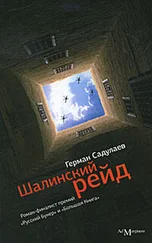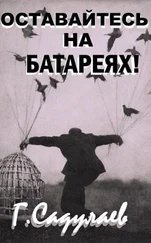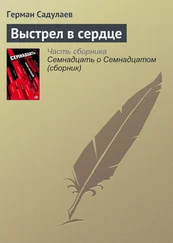My guess is that they adopt these names so that we won’t mangle their real ones and defile them with our poor pronunciation. They don’t want to waste time on the pointless and gratuitous labor of explaining their language’s phonetic system: “My name is Li Li. No, they’re different: Li is my first name, and Li is my family name. No, they’re completely different words. My first name Li is pronounced ‘Li.’ But my family name Li is a little longer and a half tone higher: ‘Li.’ A completely different meaning… Fine, okay, just call me Kolya. It’ll be easier for you.”
For the one-hundred-eighth time Eddie reminded me about our overdue payment of four hundred thousand dollars and encouraged us not to decrease our orders during the current quarter. He wrote calmly, without hysterics.
I was always struck by the paradoxical and transcendental attitude of Chinese employees toward their business dealings. The first time I came into contact with them was when I was working for a tobacco company. We were supplying unprocessed tobacco to Russian factories, which were failing gradually under the pressure of competition with transnational corporations. One of these semi-moribund factories was in Omsk. When the company entered into bankruptcy proceedings, I attended a meeting of creditors to represent the company and to try to salvage some portion of their delinquent account, which came to somewhere around a hundred thousand dollars.
Everyone assumed that the dominant voice at the meeting would be the representative of the Chinese National Tobacco Corporation, which had supplied over three million dollars’ worth of raw tobacco to Omsk.
But no one came from China. And they didn’t even submit any claims.
The Chinese had a philosophical attitude toward their client’s insolvency. So it didn’t work out, they thought; it happens sometimes. The world is not perfect. Or, on the contrary, the world is perfect, and the collapse of the Omsk tobacco business is also Tao, the path, part of the universal plan, one chord in the great musical harmony of the world. They wrote off their three million and just kept on doing business.
It’s possible that two or three of the company’s top managers—one for each unrecovered million—were dispatched by firing squad in a public square; that’s something we’ll never know. But they didn’t waste time milling about in the throng at the factory turnstile, didn’t interfere with the executors and court officials conducting the inventory of the factory’s property, and they refrained from hiring local Russian bandits and bureaucrats to solve the problem. Why bother? Too much trouble. It’s all Tao.
Cold Plus’s Chinese partners are also willing to spend years waiting patiently for their unpaid invoices, stoically enduring our never-ending attempts to obtain extra fees and discounts on any pretext, no matter how flimsy; occasionally they’ll even satisfy claims that are utterly without foundation. Just so they can continue supplying their products to Russia.
They have their own logic, their own way of understanding the concept of profit. We plan one or two years ahead, they mark time in centuries. Don’t bother paying now; go ahead, haggle for every kopeck, cheat us. But keep on buying our products, consume more and more of what we have to offer. You’re only cheating yourselves—and your offspring—enslaving yourselves to whatever we produce, destroying your own country’s economy, losing your own capacity to produce things of value. The day will come when we’ll take you with our bare hands…
I thought that it would be interesting to get inside the mind of a Chinese person, to learn what makes him tick. What goes on in the mind of this Eddie?
I typed out our standard formal response about how we “plan to execute payment this month”; and as for the volume of purchases, it was “currently under discussion in our commercial department”; then I slid the cursor over to “Send.” I hesitated for a moment, looking at the monitor, then briskly left-clicked…
What happened next, all of it, was very much like a hallucination, but to this day I’m convinced that what I experienced was real.
I looked into the monitor and my consciousness was sucked out of my skull, like a soft-boiled egg, out through my eyes. The egg metaphor comes to mind because my consciousness turned out to be yellow. A clotty, yellow-orange substance. I slipped through the monitor and down the cable to the processor, whirled along the circuit boards, and spiraled down into the telephone cable. Then I whizzed along the copper veins, leaping and bounding across transformers and switchboards until I burst out of a different monitor, flew upward, and squeezed with some effort into the pair of eyes opposite it.
And now I found myself looking at a screen again—but at my own message, this time, in the inbox.
Darkness and a short pause. Feel free to insert your commercial message here.
THE TAO OF THE MID-LEVEL MANAGER
In a low-ceilinged room with a wall of windows facing the street, an old air-conditioner hummed quietly. The higher frequencies of the acoustic spectrum were taken up with the chirping of female interns chattering on the phone and with one another. Only the middle range was relatively quiet. Ni Guan usually tuned his brain to the middle range and basked in its emptiness. Ni Guan had mastered this technique years ago, akin to distinguishing between the high and low frequencies coming over a telephone line. Without it, the sensory overload would cause his head to explode.
Since Ni Guan had tuned out the higher acoustic range, he didn’t hear any ICQ beeps, [11] An instant messaging program. I-C-Q = “I seek you”.
but the “new mail” icon flashed in the lower right corner of the screen and caught his eye. The message was from Cindy, Ni Guan’s young coworker and assistant, who dealt with contract issues involving the northern barbarians.
Cindy’s real name was Tsin Chi. She was twenty-two. She had a nice figure, was smart and fun to be with, and showered rather more attention and care on Ni Guan than was customary in interactions with a senior colleague.
Ni Guan opened the message and read:
I drive my chariot
Out the Upper Eastern gate.
To the north of the settlement
I see a multitude of graves.
Above them aspens
Rustle their leaves.
Pines and cypresses
Line the broad roadway.
Below the earth lie bodies
Of men who died in ages past,
They disappeared
Into the infinite night
And slumber there in the mist
Where yellow streams flow,
Where a thousand years pass,
Yet no one awakens.
Like a stream, a stream,
Eternally flowing, yin and yang,
The term allotted us
Is like the morning dew.
A man’s lifetime
Flashes by, a short visit:
Flesh in longevity
Is not like stone or metal.
Ten thousand years
Follow end to end.
No sage, nor holy man
Can exceed that term.
As for those who have “partaken,”
Striving to join the immortals,
To them before all others was delivered
The soporific of death.
Is it not, then, better for us
To savor the sweet wine,
and spare no silks
For our own raiment?
And under the “Thirteenth Ancient Verse” of the Shi Jing , a small postscript was appended: “Ni, shall we go out for a drink after work?”
Ni Guan turned and looked over at Tsin. She was looking straight at him, smiling immodestly. Ni Guan smiled back and shook his head gently, then briskly tapped out another poem from Shi Jing , from memory. The poem, known as “The Cricket,” is from the “Odes of the Tang Kingdom” section:
Читать дальше












